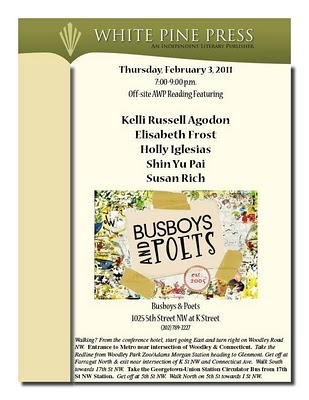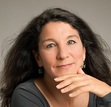Susan Rich's Blog, page 75
January 28, 2011
Awaiting the Tulip Fields on a Grey Friday: Where I Live
 I am in need of tulips this morning. Or more honestly, I am in need of spring. The first crocus has appeared along the front walk, the iris greens are in attendance, but this morning, I want more. May the Tulip Festival and April come soon.
I am in need of tulips this morning. Or more honestly, I am in need of spring. The first crocus has appeared along the front walk, the iris greens are in attendance, but this morning, I want more. May the Tulip Festival and April come soon.
Published on January 28, 2011 10:22
January 24, 2011
The Northwest Poets Come East to Washington DC! Save the date, February 3rd at Bus Boys and Poets at K Street
Published on January 24, 2011 20:07
January 23, 2011
What a Great Day for a Ferry Ride and Some Poems: Come Out Today
[image error]
It's a warm and soon-to-be sunny Sunday! Please join me on a relaxing boat ride to Eagle Harbor, home of the famous Eagle Harbor Books where Lana Hechtman Ayers, Kelli Russell Agodon, and I will be reading from our new books this afternoon! The reading is at 3:00 PM so you can walk on the 2:00 PM ferry and walk up to town in the nick of time. See you there -
It's a warm and soon-to-be sunny Sunday! Please join me on a relaxing boat ride to Eagle Harbor, home of the famous Eagle Harbor Books where Lana Hechtman Ayers, Kelli Russell Agodon, and I will be reading from our new books this afternoon! The reading is at 3:00 PM so you can walk on the 2:00 PM ferry and walk up to town in the nick of time. See you there -
Published on January 23, 2011 09:04
January 22, 2011
Crab Creek Review: Beyond Ekphrasis Reviewed in New Pages!
 Review by David MorckAfter winning a year's subscription during last year's National Poetry Day, I discovered the joy of the Crab Creek Review.What had drawn me into past issues was the range of voices, both from experienced writers and fresh, emerging writers. There has always been a certain charm to the pieces selected, whether their tone leans towards the more serious or whimsical, and this issue is no exception.The biggest standout in the second issue for 2010 is the section entitled Beyond Ekphrasis: Poems of the Musical, Mathematical, and Visual in which Crab Creek Review's first guest editor Susan Rich pulled from "over fifteen hundred poems submitted by more than four hundred poets from three different continents," "work inspired by photography, sculpture, music, film and even a mathematical equation." One of the exceptional pieces inspired by art in this section is a poem called "The Plague Doctor" by Peter Pereira based on a 1656 engraving entitled "Doktor Schabel von Rom" by Paul Fürst. The engraving is included above the poem and lends itself to the poem's dark and mystical force. The poem begins:
Review by David MorckAfter winning a year's subscription during last year's National Poetry Day, I discovered the joy of the Crab Creek Review.What had drawn me into past issues was the range of voices, both from experienced writers and fresh, emerging writers. There has always been a certain charm to the pieces selected, whether their tone leans towards the more serious or whimsical, and this issue is no exception.The biggest standout in the second issue for 2010 is the section entitled Beyond Ekphrasis: Poems of the Musical, Mathematical, and Visual in which Crab Creek Review's first guest editor Susan Rich pulled from "over fifteen hundred poems submitted by more than four hundred poets from three different continents," "work inspired by photography, sculpture, music, film and even a mathematical equation." One of the exceptional pieces inspired by art in this section is a poem called "The Plague Doctor" by Peter Pereira based on a 1656 engraving entitled "Doktor Schabel von Rom" by Paul Fürst. The engraving is included above the poem and lends itself to the poem's dark and mystical force. The poem begins:Brow shadowed by a black
wide-brimmed hat, he swings
his wooden cane to part the swarm
of flies crawling your motionless body,The word choice in the poem is exquisitely brutal, offering images of "erupting pustules", "flea-infested straw", "pungence repelling pungence," and the pitch-perfect ending leaves an enduring image of:
prods you with the cane's tip
to measure your response.
Its two oval sockets lensed in red glassOther poems that are worthy of mention within the section on ekphrasis are "Prelude" by Valerie Nieman, based on a photograph of Rosa Parks getting her fingerprints taken, and a heart-rending look at youth and strength in "Patrick Swayze" by Casey Fuller, highlighting the promise of Hollywood vigor, about the actor, who unfortunately fell victim to cancer last year.
as if to warn you—how scavenger birds
always begin with the eyes.
Published on January 22, 2011 23:18
It's Official: The Massachusetts Poetry Festival and Me

I just got confirmation that I'll be part of the Massachusetts Poetry Festival this coming Saturday, May 14th, in Salem, Mass. I don't know whether I'll get to read in this gorgeous space, but I hope so.
Massachusetts is where I am from - I was born in Boston, as were both my parents. Boston is where my grandparents settled after leaving the villages of Lithuania and Russia. My father grew up in Chelsea -- a city famous for its multiple bankruptcies, my mother's childhood was spent in Roxbury. Until I was 20 years old, Massachusetts was the only place I had lived.
To be honest, I have a love - hate relationship with my home state. I'm convinced that there's nowhere in the United States more conscious of class and race, of where you went to school or what your parents do (or did). Maybe that's changed since I left seventeen years ago. In other words, it was a hard place to grow-up if you were not a Boston Brahmin -- and I wasn't.
This November, I visited old friends in Cambridge and Somerville, where I lived before moving to the Northwest. I took the Red Line and wandered through the Commons and Public Gardens, walked to the Public Library and took in Newbury Street galleries. I fell in love with my city again.
But what makes me most excited about being invited to this festival (thank you, January!) is that Massachusetts is where I first began writing poems. I took classes in the living rooms of poets like Pamela Alexander and lived around the corner from the famous Grolier Poetry Bookshop. My first published poems were in The Massachusetts Review, Salamander, and The Christian Science Monitor. And yet, I feel certain that I never could have continued writing if I didn't move away from the influences of Plath and Sexton, Lowell and even Bishop. I needed a new landscape to claim as my own.
And yet, as Dorothy famously said, "there's no place like home." To be invited back home to read my poems and to teach a workshop, feels downright heavenly. I can't wait until spring.
Published on January 22, 2011 05:00
January 21, 2011
Travelling Around the World with His Table - Hebb at TEDxRainier
I am not a great fan of watching live speeches, but as you may already know, TEDx Rainier is an entirely different kind of production. The focus, as I understand it, is on ideas, entertainment, and technology all in service to making the world a better and more interesting place to live. I first met Michael Hebb when he invited me speak at an Underground Dinner. The dinner, housed in the penthouse at the Sorrento Hotel, focused on Alan Khazai, co-founder of CityYear and the concept of service. A few weeks later, I had a second opportunity to be part of a panel of women writers, organized by the amazing writer, doctor, activist, Nassim Assefi for Seattle's first CityArts Festival.
This is a long explanation of: watch this YouTube - you'll be glad you did. It makes me want to go to a dinner party - and explains why a good dinner party feels just a little bit magical, like a good poem. There is inspiration, an awakening of the senses, and the seeds of new ideas --- perhaps a new outlook on life. When I gave a dinner party a few weeks ago for two former students, their partners, and some other friends, it was exciting. But Hebb also mentions that cooking for people may be the second most anxiety-provoking activity one can do, after public speaking. Hebb takes the idea of the table far beyond a fun night out - listen to him explain it much better than I can. Enjoy ~ and then invite a few people over for dinner -- some that know each other and some who don't ...

This is a long explanation of: watch this YouTube - you'll be glad you did. It makes me want to go to a dinner party - and explains why a good dinner party feels just a little bit magical, like a good poem. There is inspiration, an awakening of the senses, and the seeds of new ideas --- perhaps a new outlook on life. When I gave a dinner party a few weeks ago for two former students, their partners, and some other friends, it was exciting. But Hebb also mentions that cooking for people may be the second most anxiety-provoking activity one can do, after public speaking. Hebb takes the idea of the table far beyond a fun night out - listen to him explain it much better than I can. Enjoy ~ and then invite a few people over for dinner -- some that know each other and some who don't ...
Published on January 21, 2011 13:29
January 19, 2011
Eagle Harbor Books - Bainbridge Island - This Sunday, January 23rd
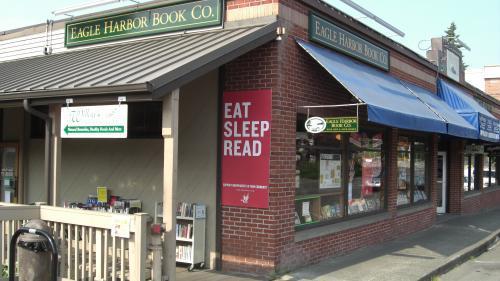
This Sunday I am going to the islands, well, one island, to read with Kelli Russell Agodon and Lana Hechtman Ayers at 3:00 PM at the Eagle Harbor Book Company. I have not done any readings since my three city couch tour in November, but now it all begins again. I look forward to reading with my two good friends. If you are in the mood for a Sunday afternoon ferry ride - why not join us?
Published on January 19, 2011 22:52
January 18, 2011
Angels in America: Thinking About Greatness
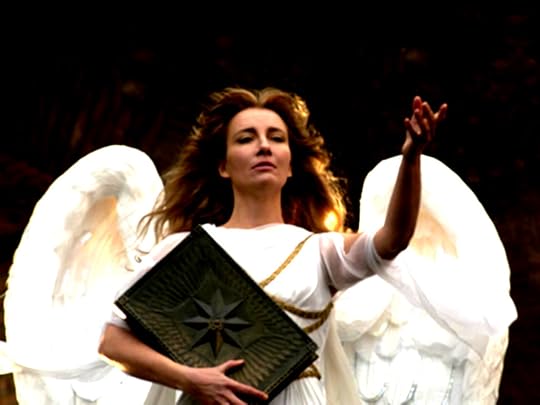
How did I miss this? Emma Thompson as an angel replete with gorgeous wings? Al Pacino in a blood chilling performance of a man consumed by self-hatred? I watched Angels in America this weekend for the very first time. And yes, I am a decade or so behind everyone else. Actually, the play is now twenty years old with the 20th Anniversary Edition coming out this year. The movie was first aired on HBO and I suppose I didn't think it was a "real" movie as it wasn't released in the theaters. How could it be? It's over five hours long -- and yet I didn't want it to end.
I think this is the first time that I have seen any piece of art that so expertly combined so many realms of life in one work. There is surrealism, history, politics, and romance to name but a few elements --- I suppose it is the writing that elevates this so -- along with superb cinematography and world class acting - but that's not the point either. I mean, that goes without saying and is meaningless until you see the film.
What I really keep thinking about is the scope of Tony Kushner's ambition: to create a piece of theater that so completely speaks to its time (the 1980's including the Reagan years and the beginning of the AIDS epidemic) and in the same piece, go far beyond its particulars to something universal. There are references to the films of Cocteau and to The Wizard of Oz.
I confess when I am writing I rarely (well, never) create on such a large canvas. Mixing so many different themes and concerns together often ends up in disaster, but not here. I'm inspired to try and do more with my work - maybe not the equivalent to a five hour film that's operatic in its structure - but at least be more aware of the larger world around me. I'm in the stage of working on a new book when nothing is clear, I'm floating or sinking depending on the day. What seeing "Angels in America" did for me over the weekend was to remind me how much is possible. How far from the everyday art can take us. We soar out of our lives and through to another world where things make sense and are imbued with an imperfect beauty. What does it take to make art like that?
Published on January 18, 2011 21:20
January 14, 2011
Poem for Friday: Dirge Without Music "I am not resigned"

She is the first poet I ever remember loving. Before Bishop, before Dickinson, before Levertov or Plath. "Think Madonna" an elderly woman told me in the 1980's, at the height of Madonna's fame. "Comparing Vincent to a poet of today misses the point; she was a rock star."
I've always loved much of Millay's work and yet it seems indelicate to say so. Her sonnets are (as Richard Wilbur says) some of the best written in the 20th Century. I loved them as a teenager and love them now, too.
Perhaps what I appreciate more today is the figure of Millay as a political poet as she matured. She wrote against the death penalty, against the guilty verdict of the Sacco and Vanzetti case, against the dropping of the bomb on Nagasaki.
In fact, her "unpatriotic" stance cost her in terms of her reputation. She used her fame to speak out against World War I and it cost her. Here are some of her poems. I hope there are other closet Millay fans or perhaps, some that are about to come into being. The Millay Colony was also the first residency that I was ever accepted at and although the writers and artists sleep and work in what was her barn, we did get a tour of her homestead. This was the first time I saw a writer's "shed" as a separate space from the main house. Her writing studio was a tiny house in the woods, just a few minutes from the main house. Millay also had an incredible gun collection, including one with a mother of pearl handle. Here's to Vincent (as she was called).
Dirge Without MusicBY EDNA ST. VINCENT MILLAYI am not resigned to the shutting away of loving hearts in the hard ground.So it is, and so it will be, for so it has been, time out of mind:Into the darkness they go, the wise and the lovely. CrownedWith lilies and with laurel they go; but I am not resigned.
Lovers and thinkers, into the earth with you.Be one with the dull, the indiscriminate dust.A fragment of what you felt, of what you knew,A formula, a phrase remains,—but the best is lost.
The answers quick and keen, the honest look, the laughter, the love,—They are gone. They are gone to feed the roses. Elegant and curledIs the blossom. Fragrant is the blossom. I know. But I do not approve.More precious was the light in your eyes than all the roses in the world.
Down, down, down into the darkness of the graveGently they go, the beautiful, the tender, the kind;Quietly they go, the intelligent, the witty, the brave.I know. But I do not approve. And I am not resigned.
What lips my lips have kissed, and where, and whyBY EDNA ST. VINCENT MILLAYWhat lips my lips have kissed, and where, and why,I have forgotten, and what arms have lainUnder my head till morning; but the rainIs full of ghosts tonight, that tap and sighUpon the glass and listen for reply,And in my heart there stirs a quiet painFor unremembered lads that not againWill turn to me at midnight with a cry.Thus in the winter stands the lonely tree,Nor knows what birds have vanished one by one,Yet knows its boughs more silent than before:I cannot say what loves have come and gone,I only know that summer sang in meA little while, that in me sings no more.
"I shall forget you presently, my dear"
I shall forget you presently, my dear,
So make the most of this, your little day,
Your little month, your little half a year,
Ere I forget, or die, or move away,
And we are done forever; by and by
I shall forget you, as I said, but now,
If you entreat me with your loveliest lie
I will protest you with my favorite vow.
I would indeed that love were longer-lived,
And vows were not so brittle as they are,
But so it is, and nature has contrived
To struggle on without a break thus far,
Whether or not we find what we are seeking
Is idle, biologically speaking.
Published on January 14, 2011 10:49
January 12, 2011
Floating Bridge Press Wants YOU: If You Are a Poet in Washington State
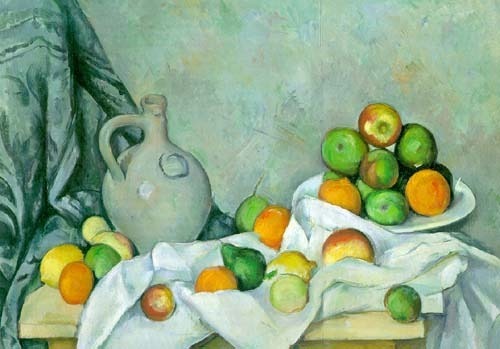
If you are a poet in Washington State, you need to enter the Floating Bridge Press Poetry Chapbook Competition. I'm serious. I know of no press that consistently produces such beautiful poems in such stunning forms. Comparing Floating Bridge Press chapbooks to other chapbooks produced in the United States is like comparing apples and oranges.
Not only are the books incredibly high quality, but the editors are the most dedicated and professional that you are likely to find. Again and again, poets told us that they had their best publishing experience with us. In other words, we kept our word on dates, quality, and distribution. I say "we" because I was a Floating Bridge Editor for five years before joining the advisory board.
Publishing poetry is an act of love. I promise you will love being part of this press. And if by chance your book doesn't win the competition this year, you may still find your poems within the pages of the Floating Bridge Review where you will be paid for your work and invited to give a reading in Seattle. $12 gets you this and a copy of the winning chapbook. Why not enter? I wish I could!
Floating Bridge Press Poetry Chapbook Competition is open for submissions until February 16, 2011. If you are a current resident of Washington State, you may submit a chapbook manuscript of up to 24 pages of poetry with a $12 entry fee. The winner receives $500, a Seattle reading in September, and 15 copies of the prize-winning chapbook. Our books are beautiful, archival-quality, perfect-bound, and collectable.
Previous winners include Joannie Kervran Stangeland, Nance Van Winckel, Donna Waidtlow, Molly Tenenbaum, Bart Baxter, Chris Forhan, Joseph Green, Kelli Russell Agodon, Michael Bonacci, Timothy Kelly, Annette Spaulding-Convy, Holly J. Hughes, Nancy Pagh, Katharine Whitcomb, and Laura Read.
Floating Bridge Press considers all individual poems for inclusion in our annual journal.
For complete guidelines and a look at our titles, please visit Floating Bridge Press.
Published on January 12, 2011 04:00

